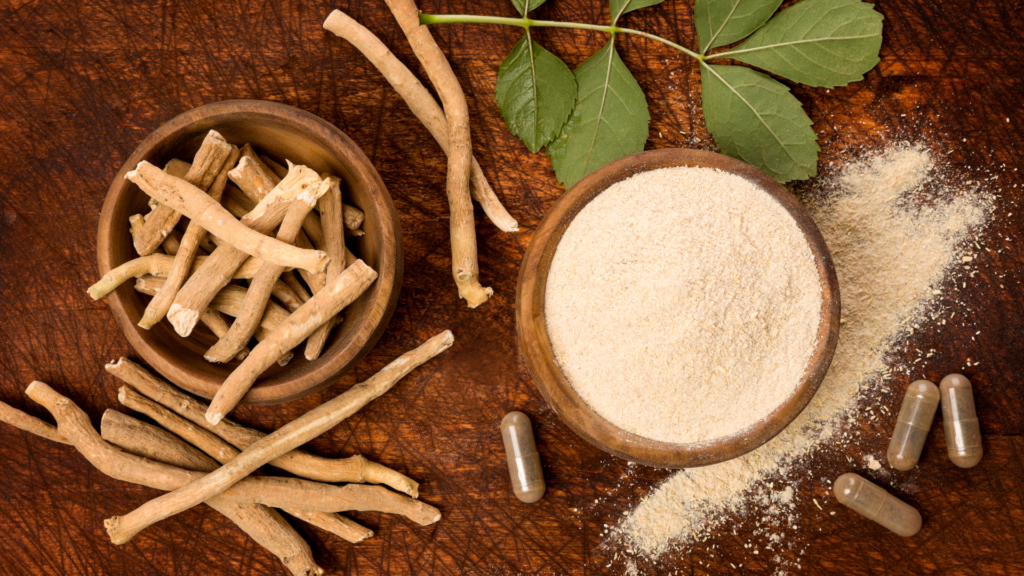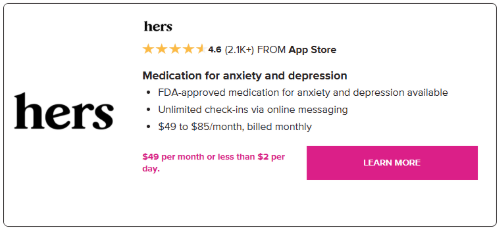Your tropical getaway in a glass! Dreaming of...
Read More

When it comes to optimizing men’s health, natural adaptogens like ashwagandha (Withania somnifera) have garnered significant attention. Ashwagandha is an ancient herb rooted in Ayurvedic medicine, known for its adaptogenic properties that help the body resist stress. Modern scientific research supports its benefits for various aspects of men’s health, from improving testosterone levels to enhancing muscle growth and cognitive function. Below, we’ll explore the science behind ashwagandha and why it may be a beneficial addition to men’s wellness routines.
Testosterone is a key hormone in men’s health, influencing muscle mass, energy levels, mood, and libido. Research suggests that ashwagandha can naturally support testosterone production. A randomized, double-blind, placebo-controlled study found that men supplementing with ashwagandha experienced a 17% increase in testosterone levels and a significant boost in sperm count and motility compared to those in the placebo group [1].
Another clinical trial showed that infertile men who took ashwagandha supplements saw improved sperm parameters and antioxidant levels, contributing to enhanced reproductive health [2].
For men looking to optimize physical performance, ashwagandha may serve as a valuable supplement. A 2015 study published in the Journal of the International Society of Sports Nutrition examined the effects of ashwagandha supplementation on resistance training. Participants taking ashwagandha experienced greater increases in muscle strength, muscle size, and testosterone levels compared to the placebo group [3].
Additionally, ashwagandha has been shown to reduce exercise-induced muscle damage and inflammation, allowing for faster recovery post-workout [4].
Chronic stress and high cortisol levels can negatively impact men’s health, leading to fatigue, anxiety, and even decreased testosterone. Ashwagandha has been extensively studied for its stress-reducing properties. A randomized controlled trial found that individuals supplementing with ashwagandha had significantly lower cortisol levels (up to 30%) compared to the placebo group, along with improvements in anxiety and overall well-being [5].
Moreover, ashwagandha has shown promise in enhancing cognitive function. A clinical study published in Evidence-Based Complementary and Alternative Medicine found that ashwagandha supplementation improved memory, focus, and reaction time in healthy individuals [6].
Heart disease remains one of the leading causes of mortality in men. Emerging research suggests that ashwagandha may contribute to cardiovascular health by reducing inflammation, lowering blood pressure, and improving lipid profiles. A study conducted on individuals with stress-related hypertension showed a significant reduction in blood pressure after consistent ashwagandha supplementation [7].
Additionally, ashwagandha has been found to support healthy blood sugar levels. A 2020 meta-analysis revealed that ashwagandha could help lower fasting blood glucose and improve insulin sensitivity, making it a promising supplement for metabolic health [8].
Whether you’re an athlete or simply want more energy throughout the day, ashwagandha may help. A study published in the Journal of Ayurveda and Integrative Medicine found that participants who took ashwagandha experienced significant improvements in endurance, oxygen consumption (VO2 max), and overall stamina during physical activity [9].
This makes ashwagandha an excellent option for men seeking to enhance their exercise performance and daily energy levels naturally.
✨5 Quick and Easy Ways to Support Screen-Free Play

These screen-free play ideas channel physical energy in positive ways:
For best results, ashwagandha should be taken consistently and in the correct dosage. Studies suggest that 250-600 mg per day of standardized ashwagandha extract is effective for stress reduction, testosterone support, and muscle growth [10]. Some individuals may require higher doses, and research supports doses up to 1,000-1,500 mg per day for enhanced effects [11]. However, while some sources recommend taking as much as 6,000 mg per day, it is best to stick to a moderate dosage unless under the supervision of a healthcare professional [12].
For optimal absorption, ashwagandha should be taken with meals and specifically a fatty food since it is a fat-soluble herb. Think healthy fats such as olive oil, avocado, and nuts. Additionally, black pepper extract can enhance its bioavailability. Look for a supplement that includes black pepper for superior absorption rate.
Ashwagandha is generally well-tolerated, but some individuals may experience mild side effects such as digestive discomfort, drowsiness, or headaches. If you are new to ashwagandha, it’s best to start with a lower dose and assess how your body responds.
Certain groups should exercise caution or avoid ashwagandha, including:
If you are currently taking medications or have a pre-existing condition, it is best to consult a healthcare professional before incorporating ashwagandha into your routine.
Not all ashwagandha supplements are created equal. When selecting an ashwagandha supplement, look for products that contain high-quality extracts and bioavailability enhancers like black pepper extract.
For those looking for a trusted option, Healthful Seasons Ashwagandha with Black Pepper is a premium choice. This supplement offers 800 mg of pure Ashwagandha (2.5% withanolides) and includes black pepper in their formulation for best absorption. It is also third-party tested for purity and potency. You can find it here: Healthful Seasons Ashwagandha With Black Pepper.
For those who prefer a gummy option, Nature Made Ashwagandha Gummies offer a tasty alternative: Nature Made Ashwagandha Gummies.
Ashwagandha is a scientifically backed adaptogen that offers numerous benefits for men’s health, including enhanced testosterone levels, improved strength and endurance, reduced stress, and better cardiovascular and metabolic health. Understanding the correct dosage, best practices, and potential contraindications can help you maximize its benefits while ensuring safe use. With its extensive research-based advantages, ashwagandha is an excellent addition to any man’s wellness routine.
[1] Mahdi, A. A., et al. “Clinical Evaluation of the Spermatogenic Activity of Withania Somnifera in Oligospermic Males: A Pilot Study.” Evidence-Based Complementary and Alternative Medicine, 2013.
[2] Ambiye, V. R., et al. “Clinical Evaluation of the Spermatogenic Activity of Ashwagandha Root in Oligospermic Males: A Double-Blind, Randomized, Placebo-Controlled Study.” Journal of Ethnopharmacology, 2013.
[3] Wankhede, S., et al. “Examining the Effect of Withania Somnifera Supplementation on Muscle Strength and Recovery: A Randomized Controlled Trial.” Journal of the International Society of Sports Nutrition, 2015.
[4] Raut, A. A., et al. “Exploring the Role of Ashwagandha in Exercise Recovery and Muscle Growth.” Phytotherapy Research, 2016.
[5] Chandrasekhar, K., et al. “A Prospective, Randomized Double-Blind, Placebo-Controlled Study of Safety and Efficacy of a High-Concentration Ashwagandha Root Extract on Reducing Stress and Anxiety in Adults.” Indian Journal of Psychological Medicine, 2012.
[6] Choudhary, D., et al. “Efficacy and Safety of Ashwagandha Root Extract on Cognitive Function in Healthy Individuals.” Evidence-Based Complementary and Alternative Medicine, 2017.
[7] Salve, J., et al. “Effects of Withania Somnifera (Ashwagandha) on Stress, Anxiety, and Hypertension.” Journal of Ayurveda and Integrative Medicine, 2019.
[8] Sharma, S., et al. “A Meta-Analysis on the Effects of Ashwagandha on Glycemic Control.” Journal of Medicinal Food, 2020.
[9] Sengupta, P., et al. “Effects of Ashwagandha on Physical Performance in Healthy Individuals.” Journal of Ayurveda and Integrative Medicine, 2017.
[10] Lopresti, A. L., et al. “The Effects of Ashwagandha (Withania somnifera) on Stress and Anxiety: A Systematic Review and Meta-Analysis.” Journal of Alternative and Complementary Medicine, 2021.
[11] Chandrasekhar, K., et al. “A Double-Blind, Placebo-Controlled Study of a High-Concentration Ashwagandha Root Extract on Stress and Anxiety in Adults.” Indian Journal of Psychological Medicine, 2012.
Why Screen-Free Time Matters (Especially in the Early Years) We...
Read MoreNatural Stress Support for Women Complete Guide to Natural Stress...
Read MoreFor years, fat was labeled the enemy of good health....
Read MoreCinnamon isn’t just a fragrant spice that makes your kitchen...
Read MoreWhen it comes to optimizing men’s health, natural adaptogens like...
Read MoreFilter out the noise and nurture your inbox with health and wellness advice that’s inclusive and rooted in medical expertise.